Not only how to remove the egg you accidentally burned on your stainless steel pan (ahem), more importantly I’m sharing tips on how to prevent it from happening again!
Oh boy.
Yes, so this has been happening a lot lately and wasn’t sure why…
Where’s Alton Brown when you need him?? I bet he has all the answers to why this is going on!
Anyway, this happened a few times because I didn’t make the research into this topic a high priority. But last week when it happened again, and found myself scrubbing the pan again, it swiftly made its way to the top of my list! I not only wanted to spend a few moments to find out the why part, but also how to easily clean my pan. What I didn’t realize through my research is that the cleaning process may play a part into why my egg is burned. And that’s why I’m sharing this helpful post with you guys – both components are equally important.
Just in time for that Mother’s Day brunch you have planned!
First I’ll share how to easily clean the pan with only 3 ingredients you already have in the house. I had two pans to clean, one was worse than the other.
What you’ll need…
1 Cup of Vinegar
2 Tablespoons of Baking Soda
Water
To start, add a layer of water to cover the bottom of your pan and add 1 cup of vinegar. Put your pan on the stove over medium heat until it begins to boil…
Once boiling, turn off the heat and add 2 tablespoons of baking soda. It will foam and bubble, so add each tablespoon slowly…
Then remove it from the stovetop and let it sit until warm enough for you to scrub, keeping the water mixture in the pan as your cleaning agent.
This was my result after one go round…
With minimal arm effort, quite a bit was removed. After one more cleaning round, we were back in business…
If you find your egg is burned on quite a bit more and you’re really struggling, I’ve heard good things about Bar Keepers Friend, and have used it myself in the past. However, a word of caution – and why I didn’t go there from the beginning – in my research I discovered that abrasives in your stainless steel pan may be part of what’s contributing to food sticking in the first place. So use cautiously and sparingly.
You can also make a paste from baking soda mixed with a little water and use that to clean your pan. It’s less abrasive.
Moving on to how we can prevent the egg from burning in the first place…there was a ton info available so I decided to bullet point the tips that resonated. These are also the tips that seemed to be agreed upon by a lot of folks sharing or commenting.
- If you think about it, eggs are the glue in nearly every recipe that calls for them. So naturally, cooking them in a pan will cause them to stick. The best way to avoid sticking is to cook slowly over the right temp and to not bother them too much during the initial cooking process.
- Cooking eggs correctly in a stainless pan involves starting at the right temperature, which appears to be about 320 degrees. A good test to know your pan is ready or the temp is correct is to drop water into the pan – if it stays in a ball and rolls around in the pan, it’s just right.
- A decent percentage of people feel negatively about non-stick pans for cooking eggs – or anything really. Personally, in the past I’ve owned non-stick pans, but don’t have any now. I have a set of stainless steel pots and pans as well as a few ceramic cookware pieces. There’s a lot of opinions on the topic of non-stick and it’s a debate that isn’t appropriate here on my blog. Everyone has an opinion on the matter of health issues related to using non-stick. I say, do what you want. But there was a lot of chatter about it during my research, so it was a good point to bring here.
- To spray or to oil or to butter? There was a lot of discussion about this as well. Some felt butter was a healthier option for cooking over the stove, as opposed to a Pam-type spray that comes from an aerosol can. But the real issue with spray was in regards to the way it ultimately affects your pan. Much of the info I read suggested spraying your pans will only damage their finish over time. Which brings me to my next point…
- Seasoning your pan is important and a well-seasoned pan has less of a chance to burn your food. Most pans don’t require a thorough scrub-down to the point of brand new perfection. Pans really need to stay seasoned…so after cleaning out the food remnants, it’s important to season your pans to keep them in great shape for their next cooking session.
Finally, I thought this tip from this feed was excellent – “An ex-girlfriend’s mom used to be a short-order cook and I learned the best way of frying eggs from her. Crack the eggs into any pan, let them set or crisp edge, then pour about a shot of water per egg between the eggs into the pan (some use butter). Cover the pan for a few minutes and voila. This works with sticky pans as well; if I’m frying one or two eggs I use a 10″ All-Clad LTD and a lid from a 3Q saucepan. Never a stuck egg in my 15 years of doing it this way.” This comment was backed up by someone commenting later that they tried it and in fact the method worked! I’m looking forward to trying this over the weekend when I make my typical Saturday morning breakfast for everyone.
Of course, I’d love to hear tips from you as well – Share with us in the comment section please!
Happy cooking and cleaning everyone!
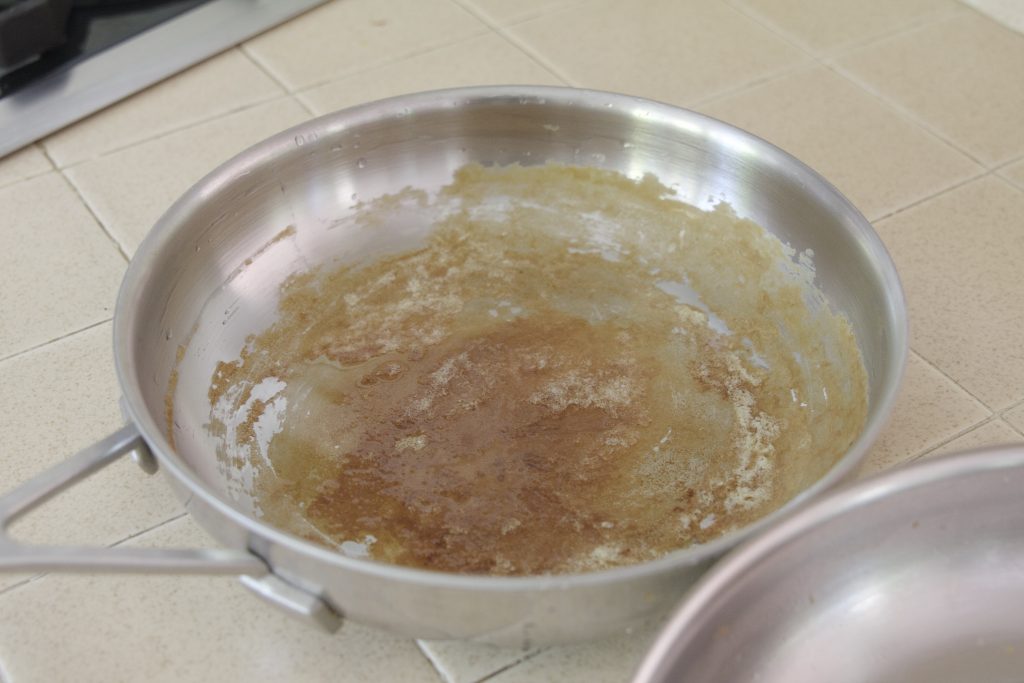
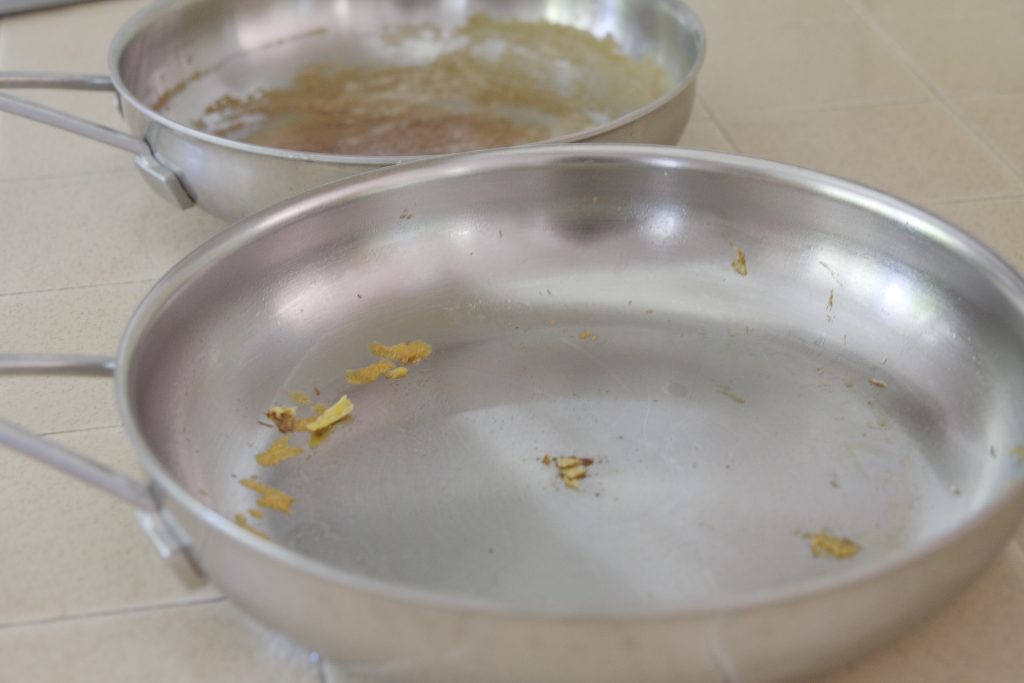
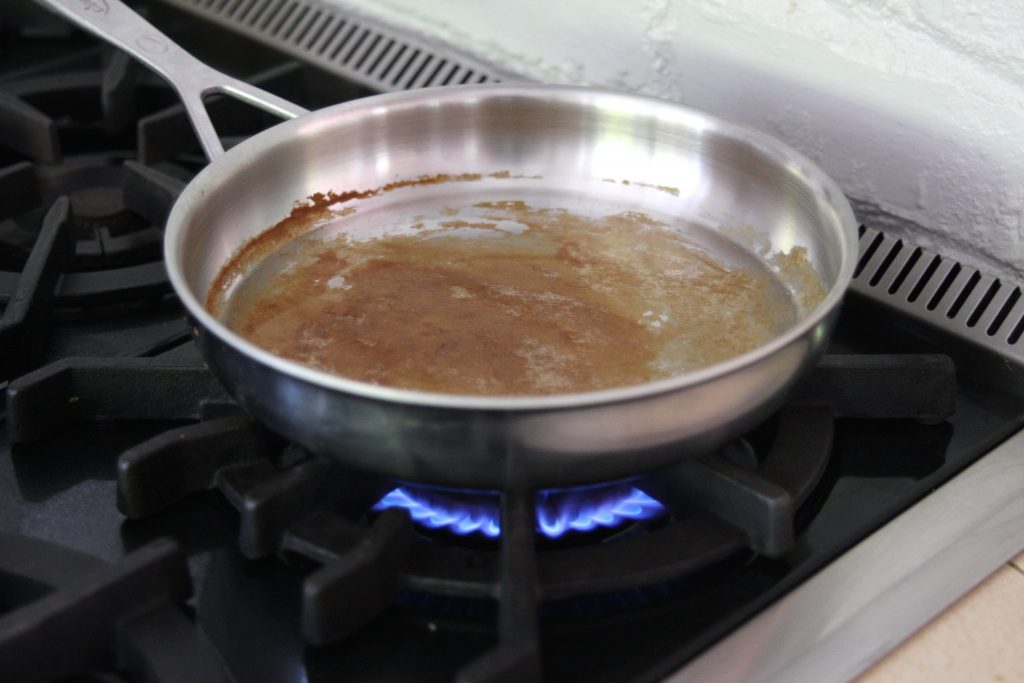
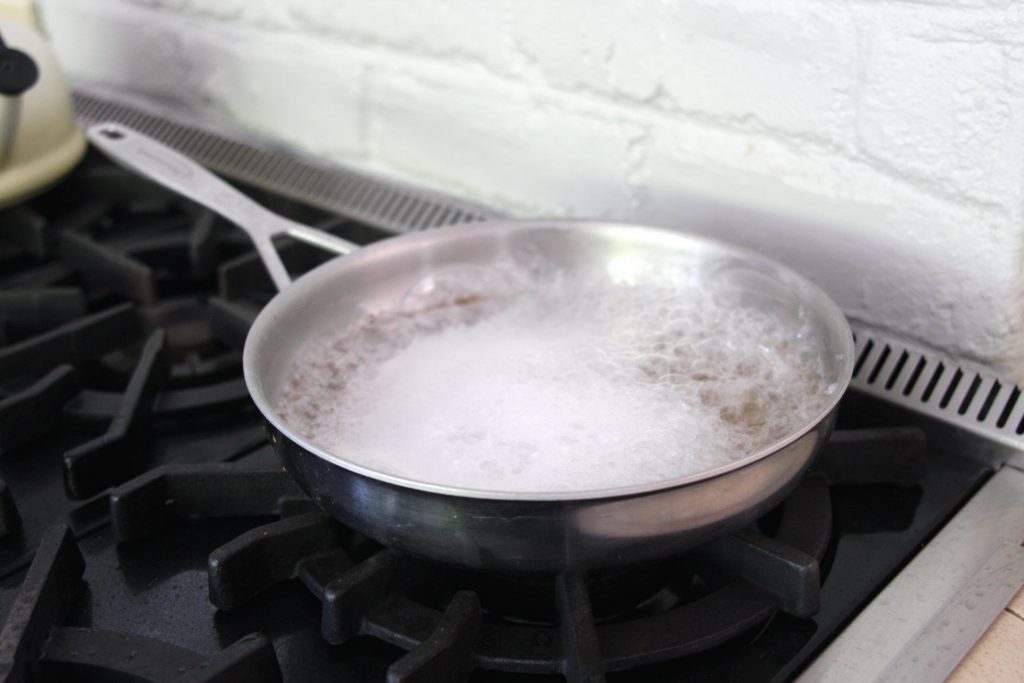
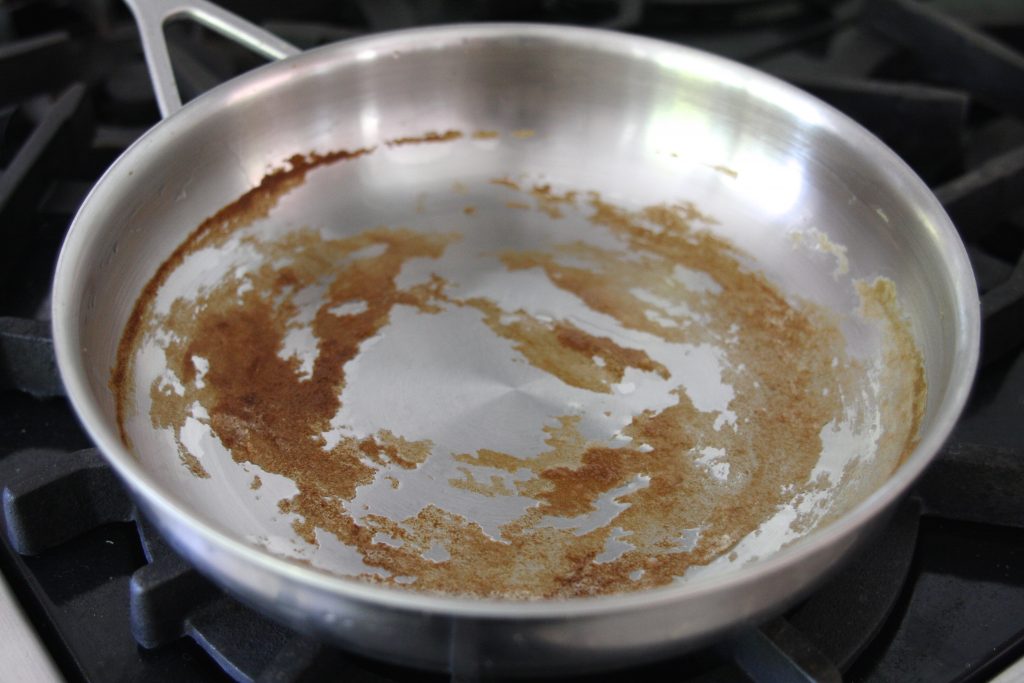
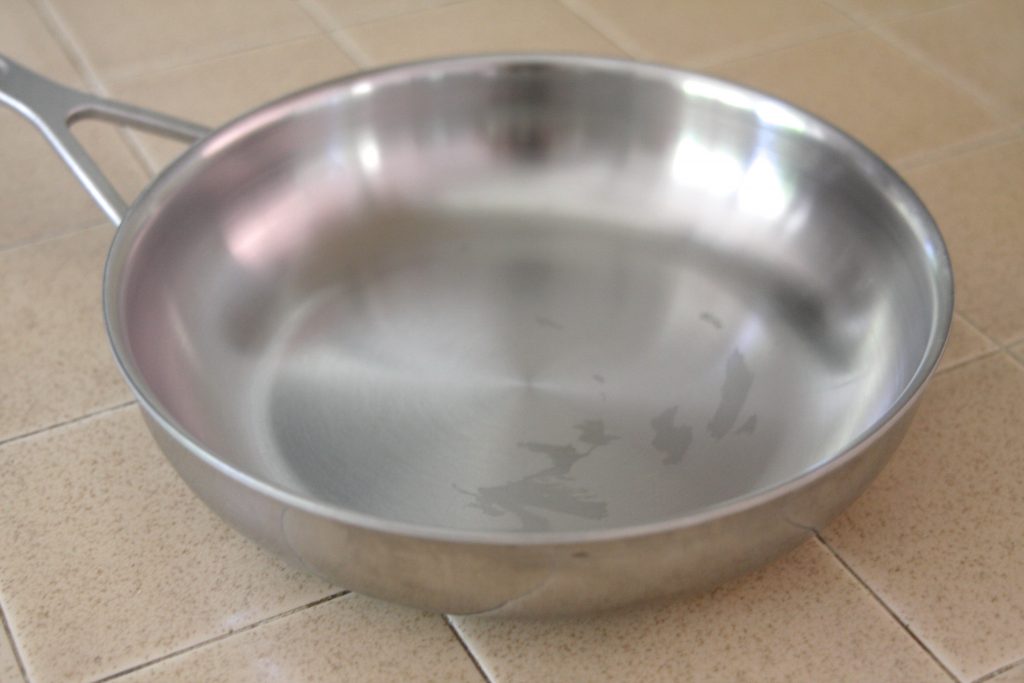
I’ve been doing that the last couple of years…..adding a bit of water or butter and they don’t stick! It really does work!
My husband is a firm believer in using bacon grease when we cook eggs. Let’s just say that while I love the taste, I don’t actually use it when I only makes eggs for me. 😉
We also immediately soak the pan when we’re done. Put it in the sink and fill it with water then let it soak while we eat breakfast. It comes out pretty easily after that.
I have had success with baked on eggs by covering with water and heating on the stove… but instead of vinegar and baking soda I sprinkle in some dishwasher powder (like cascade not dawn) and bringing to a low boil. Once it cools the egg just lifts off with minimal scrubbing! Love it!!!
Totally worked and only needed one go around! Thank You!
I have an All-Clad pot (many) and this one had egg protein stuck on it. I mean really stuck! We were scrubbing the heck out of it with Barkeeper’s friend (All-Clad recommended after we reached out to their customer service) and it was barely taking it off, and that’s with prodigious elbow grease. But this did it in 30 minutes total, with virtually zero scrubbing. Thank you for the great advice. Glad i searched, “egg protein stuck on pot”!
Hi, I am a chef and have enjoyed the luxury of having a kitchen hand available to always do my dishes.
I have since started my own catering business and do my own dishes.
One of my contracts is a weekly business breakfast for a local group. They get scrambled eggs and it’s the worst pot to clean! I’m talking a lot of eggs and a lot of stuck on gunge. In desperation I did a search on how to clean these pots and found this. I just tried it – miraculous!!! Before, i used to soak the bottom of the pot with vinegar and baking soda but the heating of the vinegar and adding the Soda makes all the difference.Thanks so much for making my life easier 😉
Why add the baking soda? It’s an alkaline, and vinegar is an acid. Together they cancel each other out in terms of pH. Which one do you think is doing the work of loosening the egg protein from the pan?
I thought the same thing when given vinegar+bakingsoda as a solution to a clogged drain.
The answer, I believe, is that the violent release of gas (especially INSIDE the egg material which has absorbed the vinegar) breaks it up.
Make sure to soak your pan immediately in cold water – that really makes all the difference.